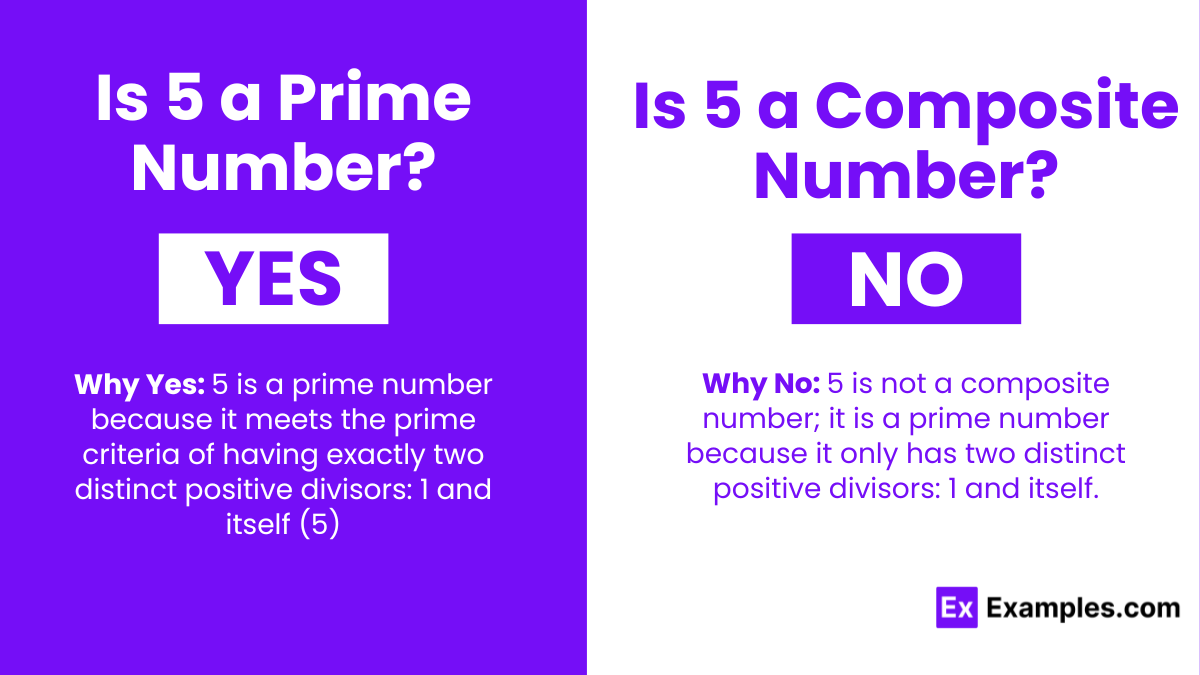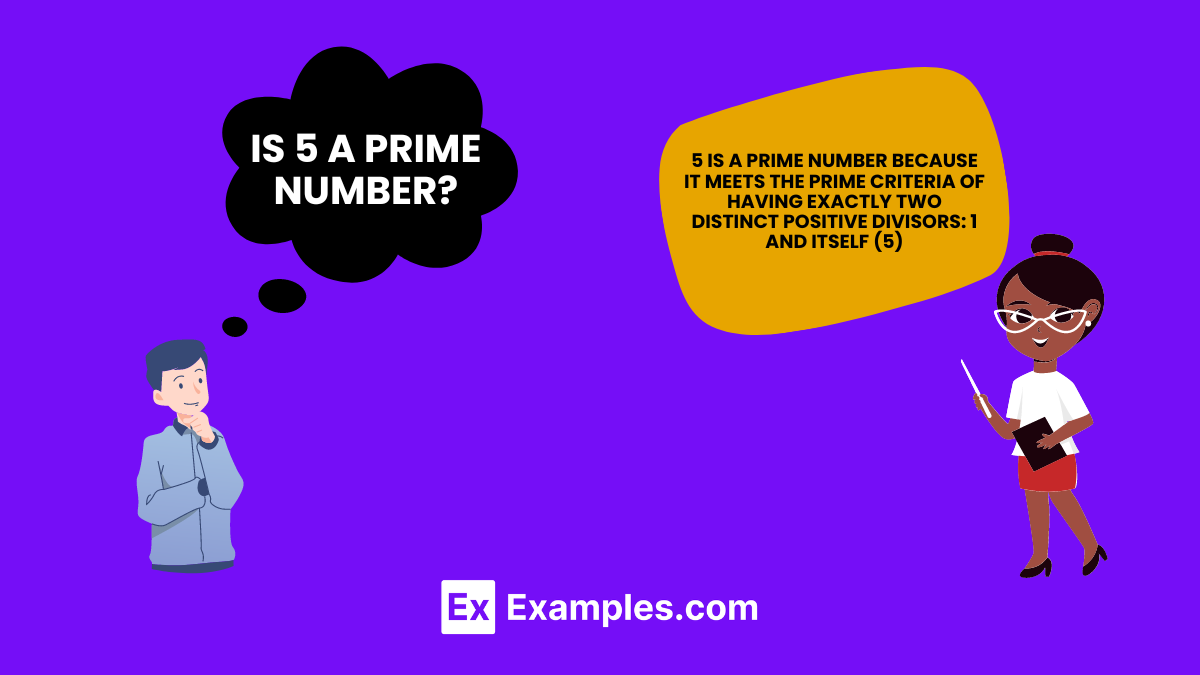Is the number 5 a prime number or a composite number?
Prime
Composite
Neither
Both


Yes – 5 is a prime number.
Why Yes: 5 is a prime number because it meets the prime criteria of having exactly two distinct positive divisors: 1 and itself (5). Check if any number is prime or not

NO – 5 is not a Composite Number
Why No: 5 is not a composite number; it is a prime number because it only has two distinct positive divisors: 1 and itself.

| Property | Answer |
|---|---|
| Is 5 a prime number? | Yes |
| Is 5 a composite number? | No |
| Is 5 a perfect square? | No |
| Factors of 5 | 1, 5 |
| Multiples of 5 | 5, 10, 15, 20, 25, 30, 35, 40, 45, 50 |
| Cube Root of 5 | 1.71 |
| Square of 5 | 25 |
| Square Root of 5 | 2.24 |
| Is 5 a Perfect Square? | No |
| Is 5 a Perfect Cube? | No |
| Is 5 an Irrational number | No |
| Is 5 a Rational number | Yes |
| Is 5 a Real number | Yes |
| Is 5 an Integer | Yes |
| Is 5 a Natural number | Yes |
| Is 5 a Whole number | Yes |
| Is 5 an Even or odd number | No (5 is an odd number) |
| Is 5 an Ordinal number | Yes |
| Is 5 a Complex number | Yes (as all real numbers are also complex numbers) |
The factors of 5 are strictly limited to 1 and 5 itself because 5 is a prime number. Prime numbers do not have other factors besides 1 and themselves.
5 is not only recognized as a prime number but also stands out as one of the notable odd prime numbers. This characteristic aligns it with the common property of prime numbers being indivisible by any number other than 1 and themselves. The number 5, in particular, has its own significance in numerous cultures around the world, often regarded as a symbol of balance and harmony. Its status as a prime number and its cultural significance highlight the intriguing interplay between mathematics and human belief systems.
No, 5 is not a perfect square. A perfect square is a number that can be expressed as the square of an integer, and 5 does not meet this criterion.
The prime factors of 5 consist only of 5 itself, since it is a prime number. Prime numbers are only divisible by 1 and themselves.
Text prompt
Add Tone
10 Examples of Public speaking
20 Examples of Gas lighting
Is the number 5 a prime number or a composite number?
Prime
Composite
Neither
Both
Which of the following statements is true about the number 5?
It is a composite number because it is greater than 1.
It is a prime number because it has exactly two divisors.
It is neither prime nor composite.
It is composite because it can be divided by 5.
If a number is only divisible by 1 and itself, what classification does it fall under?
Composite
Prime
Neither
Perfect
Which of these numbers is a prime number?
3
4
5
6
What is the characteristic of a composite number that 5 does not have?
Divisibility by more than two numbers
Being less than 10
Being greater than 1
Being odd
Which of the following is NOT a characteristic of prime numbers?
They can be divided by 1 and themselves
They are always even numbers
They are greater than 1
They have exactly two distinct divisors
Is 5 a prime number because it has:
Exactly one divisor
Exactly two divisors
Exactly three divisors
No divisors
Which number in the list is a prime number?
3
4
5
6
What is the classification of the number 5 if it is only divisible by 1 and itself?
Composite
Prime
Perfect
Complex
How does 5 compare to composite numbers in terms of divisibility?
It has fewer divisors than composite numbers.
It has more divisors than composite numbers.
It has the same number of divisors as composite numbers.
It has no divisors.
Before you leave, take our quick quiz to enhance your learning!

